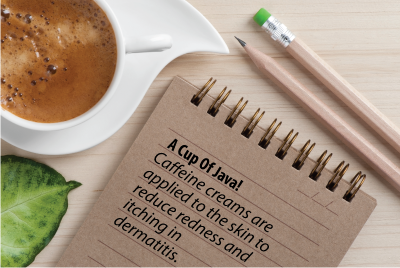Are you Vaping? Do you know someone who is? Family Matters!
Electronic Cigarettes! Are they good for you? You Matter!
http://www.center4research.org/vaping-safer-smoking-cigarettes-2/
Are you Vaping? Do you know someone who is? Family Matters!
Electronic Cigarettes! Are they good for you? You Matter!
http://www.center4research.org/vaping-safer-smoking-cigarettes-2/
Staying healthy is important as you start your life in a new country. That’s why it is a good idea for women to get checked, or screened, for breast cancer. Cancer of the breast is the most common cancer in women living in Canada, and one in nine women will develop breast cancer in her lifetime. Each year, about 9,500 Ontario women will be diagnosed with breast cancer and almost 2,000 will die from this disease.
Screening tests can find breast cancer before you have signs or symptoms. If breast cancer is found early, when it is very small, there is a good chance of treating it successfully.
More than 80% of breast cancers are found in women over age 50. Therefore, in Ontario it is recommended that women between the ages of 50 to 74 get screened for breast cancer by having a mammogram every two years.
Some women may have a high risk for breast cancer because of their family or personal medical history. These women should have a mammogram and an MRI (magnetic resonance imaging) once a year if they are between the ages of 30 and 69. If you think you may be at high risk for breast cancer, ask your doctor whether you need high risk screening.
A mammogram is a low-dose breast X-ray. It can find breast changes even when they are too small to feel or see. Most women will have normal mammogram results.
While mammograms are the best way to screen for breast cancer, there are limitations. Your doctor can answer any questions you might have.
You can make an appointment or ask your doctor to make an appointment at the breast screening clinic in your community. Mammograms are free for residents who have the Ontario Health Insurance Plan (OHIP). They are also free for women without OHIP who have an average risk (as opposed to high risk) of getting breast cancer. If you do not have OHIP coverage, speak to your local community health centre.
Breast cancer screening is so important that Cancer Care Ontario, an agency of the Ontario Ministry of Health and Long-Term Care, sends letters to eligible women to invite them to have a mammogram. Women also get letters that tell them their screening results and remind them when it is time to return for screening. It is your choice to be screened or not.
excerpts from https://settlement.org/ontario/health/nutrition-and-healthy-living
For more information as to how to love yourself, take care of yourself and family matters because I’ts Your Legacy… You Matter!
follow us at https://twitter.com/theripregistry
Like us on https://www.facebook.com/theripregistry/
Are you better off investing inside or outside your RRSP?
To find out more use this calculator.
https://www.sunware.ca/access.asp?intendedPage=gain&lang=en-CA
Here it is for you non-resident tax payer
This can happen to you and affect your family?
Do you have documents stored in your home in a safe place. In a fire you can loose everything. You should protect yourself and your family.
https://www.usatoday.com/media/cinematic/video/3863563002/third-graders-help-classmate-who-lost-everything-in-fire/
How do you keep it documented? How do you keep it safe?
Well you can at theripregistry.com.
Watch this short video.
http://theripregistry.org/RIP_-_Collage_June_29_-_FOR_REVIEW.mp4
Register at theRIPregistry.ca
check out twitter@theripregistry and facebook@theripregistry for more
Caffeine is a chemical found in coffee, tea, cola, guarana, mate, and other products.
Caffeine is most commonly used to improve mental alertness, but it has many other uses. Caffeine is used by mouth or rectally in combination with painkillers (such as aspirin and acetaminophen) and a chemical called ergotamine for treating migraine headaches. It is also used with painkillers for simple headaches and preventing and treating headaches after epidural anesthesia.
Some people use caffeine by mouth for asthma, gallbladder disease, attention deficit-hyperactivity disorder (ADHD), obsessive-compulsive disorder (OCD), low oxygen levels in the blood due to exercise, Parkinson’s disease, memory, cramping, liver cirrhosis, Hepatitis C, stroke, recovery after surgery, decreasing pain, muscle soreness from exercise, age-related mental impairment, shortness of breath in newborns, and low blood pressure. Caffeine is also used for weight loss and type 2 diabetes. Very high doses are used, often in combination with ephedrine, as an alternative to illegal stimulants.

Caffeine is one of the most commonly used stimulants among athletes. Taking caffeine, within limits, is allowed by the National Collegiate Athletic Association (NCAA). Urine concentrations over 15 mcg/mL are prohibited. It takes most people about 8 cups of coffee providing 100 mg/cup to reach this urine concentration.
Some caffeine products are sold in very concentrated or pure forms. These products are a health concern. People can easily use these products in doses that are much too high by mistake. This can lead to death. As of 2018, the U.S. Food and Drug Administration (FDA) considers it unlawful for these products to be sold to consumers in bulk.
Caffeine creams are applied to the skin to reduce redness and itching in dermatitis.
Healthcare providers sometimes give caffeine intravenously (by IV) for headache after epidural anesthesia, breathing problems in newborns, and to increase urine flow.
In foods, caffeine is used as an ingredient in soft drinks, energy drinks, and other beverages.
People with voice disorders, singers, and other voice professionals are often advised against using caffeine. However, until recently, this recommendation was based only on hearsay. Now developing research seems to indicate that caffeine may actually harm voice quality. But further study is necessary to confirm these early findings.
READ MORE caffeine
Need more information?
Take care of your legacy , incase you become disabled or unable to advocate for yourself.
Sign Up Now… It’s Your Legacy and It’s Free!
Have questions? visit theripregistry.ca

Recent Comments